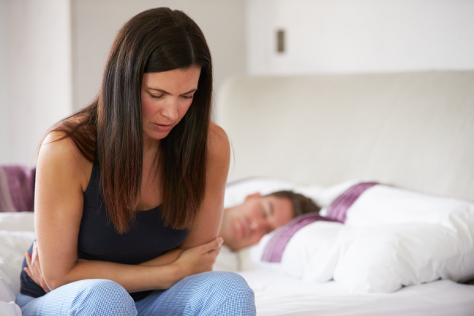When does morning sickness start?
Morning sickness usually starts around week 6 of pregnancy. For most women this improves or completely disappears between 14-16 weeks. Symptoms will vary for each individual but it's usually nausea or a mixture of nausea and vomiting.
At a glance
- Morning sickness will usually start at 6 weeks
- It will likely last until week 14
- It's possible you won't experience symptoms at all

When does Morning Sickness start?
Morning sickness can be one of the early signs of pregnancy. Although it will vary from each mum-to-be to the next, usually the first symptoms of morning sickness start when you are 6 weeks pregnant. It’s at this point that the hormones being produced by your body (which are considered to be the largest factor in having morning sickness) increase and start to have an effect on you.
If you’re not aware you’re pregnant yet, this could be an early sign that you are. When you start to get morning sickness it might not be in the morning, instead it can affect you any time of day or night. However, you are more likely to feel sick in the morning due to having an empty stomach and it’s advisory to take things slow first thing and if you can, try to eat some dry toast or biscuits to help alleviate the symptoms.
What if I don’t have any symptoms?
If you’re not displaying any symptoms of morning sickness around the 6-8 week mark, it’s possible that you won’t experience them at all. Around half of women who are pregnant will have both vomiting and nausea, and around 3 out of 10 will just experience the nausea without the vomiting. Not every women suffers with it, and it’s nothing to be concerned about if you don’t.
What if my morning sickness is severe?
Whilst most mums-to-be will experience symptoms that are unpleasant but manageable, for some morning sickness can be more severe and excessive, leaving you unable to keep down any food or drink at all. The reasons for severe morning sickness can vary, it could be because you’re expecting twins as the hormones levels are higher than when expecting a single baby.
If they’re particularly severe you might be suffering from Hyperemesis Gravidarum, a more serious condition that usually requires a hospital visit for re-hydration and further medication and treatment.